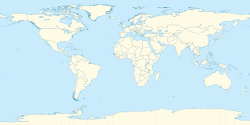Ulsan
울산시 | |
|---|---|
| transcription(s) | |
| • Hangul | 울산광역시 |
| • Hanja | 蔚山廣域市 |
| • Revised Romanization | Ulsan-gwangyeoksi |
| • McCune–Reischauer | Ulsan-gwangyŏksi |
Downton Ulsan, Ulsan aerial view, Simnidaebat Bridge, Gajisan Provincial Park and Daewangam Park | |
 | |
 | |
| Coordinates: 35°33′N 129°19′E / 35.550°N 129.317°E | |
| Country | |
| Region | Yeongnam |
| Districts | 5 (including 1 county) |
| Government | |
| • Type | Mayor–Council |
| • Mayor | Kim Du-gyeom (People Power) |
| • Body | Ulsan Metropolitan Council |
| Area | |
• Total | 1,057.136 km2 (408.162 sq mi) |
| Population (september,2024[1]) | |
• Total | 1,098,728 |
| • Rank | 8th Korea |
| • Density | 1,000/km2 (2,700/sq mi) |
| • Dialect | Gyeongsang |
| Demonym | Ulsanian |
| GDP | |
| • Total | KR₩ 86 trillion US$ 69 billion (2022) per capita US$ 63,017 (2023) |
| Area code | +82-52(2) |
| ISO 3166 code | KR-31 |
| Flower | Pear flower |
| Tree | Ginkgo |
| Bird | White heron |
| Website | Official website (English) |
Ulsan (Korean: 울산; Korean pronunciation: [uɭ.s͈an]), officially the Ulsan Metropolitan City, is South Korea's seventh-largest metropolitan city and the eighth-largest city overall, with a population of over 1.1 million inhabitants.[3] It is located in the south-east of the country, neighboring Busan to the south and facing Gyeongju to the north.
Ulsan is the industrial powerhouse of South Korea, forming the heart of the Ulsan Industrial District. It has the world's largest automobile assembly plant, operated by the Hyundai Motor Company;[4] the world's largest shipyard, operated by Hyundai Heavy Industries;[5][unreliable source?] and the world's third largest oil refinery, owned by SK Energy.[6] In 2020, Ulsan had a GDP per capita of $65,352, the highest of any region in South Korea.
- ^ "Population statistics". Korea Ministry of the Interior and Safety. 2024.
- ^ 2022년 지역소득(잠정). www.kostat.go.kr.
- ^ "SOUTH KOREA: Cities (registered population)". Citypopulation. Retrieved 21 August 2013.
- ^ 연합뉴스 : 바른언론 빠른뉴스 (in Korean). Yonhap News. 2009-10-16. Retrieved 2013-07-12.
- ^ 천혜 절경 바닷가가 세계 최대 조선소로 변모. OhmyNews. 2013-01-18. Retrieved 2013-07-12.
- ^ http://pda.ulsan.go.kr/Common/Detail.neo?id=U0010711%5B%5D







